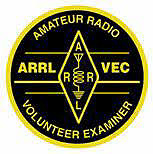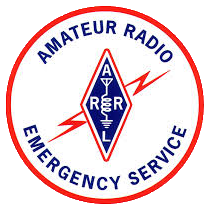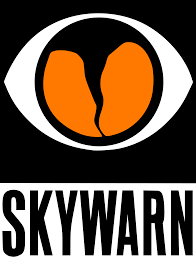ARES, MOUs and Served Agencies
- Details
ARES, at the national, state, and local level often enters into agreements with other communications organizations, non-governmental organizations (NGOs), and government at different levels. These agreements, usually called memoranda of understanding or an MOU for short, define the relationship between ARES at different levels and these entities.
The MOU provides a framework under which we provide mutual support, depending upon where the need is. Setting aside local MOUs, such as the one between Carroll County ARES and Tanner Medical, the state and national ARES organizations have MOUs that extend to the local ARES organizations as well. These organzations include the Red Cross, Salvation Army, Civil Air Patrol, Citizen Corps, Natonal Weather Service, and others.
In many cases these entities operate their own corps of Amateur Radio Operators that ARES volunteers would work with in the event the MOU is invoked and ARES support is requested. Many ARES members are also members of these alternative organizations, and while volunteerism is promoted in amateur radio, such dual-allegiance can cause problems in the even two different organizations call up their amateur radio operators at the same time.
Professionalism In Amateur Radio
- Details
Amateur Radio and Public Safety have changed a lot through the past few decades. As population densities increased and the impact of fires and floods impacted a larger group of people, larger metropolitan areas began developing procedures to enhance their ability to respond.
Ultimately, systems developed as a result of major fires in California were refined and adopted by many states, and ultimately the federal government. FEMA now provides a standardized set of training programs that standardizes protocols at the local, state, and national level, without inhibiting the local government's ability to retain control of operations.
The new standard protocol, called the Incident Command Systems, or ICS for short, is taught across all the above mentioned layers of government and non-government organizations (or NGOs for short), who would respond in an emergency.
Despite the push for standardization and inter-agency communications, virtually every agency had its own communications gear and frequencies that were generally not compatible. This remained true even into the 2000s.
Home Preparedness
- Details
What is the single most important prerequisite for activation in the event of an emergency? Multiple radios, spare batteries, emergency HF antennas, or a 4WD truck?
How about an emergency ready home? How likely are you to deploy after a local disaster if the power is out, water isn't running, and/or stores are closed with a family scrambling to gather the bare necessities? Not very likely at all.
While many prepare for disaster with bug-out bags, the reality is that more often than not a disaster creates many obstacles to bugging out, while your home, even if damaged, provides needed shelter and supplies. I'm not against bug-out bags, mind you, just pointing out that statistically, disasters are more likely to make home the safest place to be as opposed to the alternatives.
Despite the Southern tradition at the first mention of the four letter 'S' word of raiding all nearby stores and purchasing every bit of milk, bread, eggs, and often beer, that can be found, most of us could comfortably subsist on what we have around the house for several days with just a little additional preparation. FEMA recommends enough on-hand emergency supplies for three days. I recommend a little longer.
The biggest item is water. It's not just for drinking. It's also used for hygiene and food preparation purposes. It's wise to have a gallon per person per day stored. With this you can do everything from boil eggs before they go bad to fill up the toilet tank.
Standard Phonetics In Amateur Radio
- Details
In an effort to ensure reliable and understandable communications, the International Telecommunications Union, of which the U.S. is a member, created a standard phonetic alphabet, very similar to the old NATO phonetics.
Why is such a "standard" important? Because when there is a lot of noise and interference it is often difficult to pick out words and spelling is often necessary. By using the standard phonetics we can often determine which phonetic is being used by hearing even a fragment of the word. For instance, if I were phonetically spelling a word and you heard ..rav.. rome... ...ndia... alph... ..vember, you could determine I was spelling BRIAN.
On the other hand, using non-standard phonetics can create confusion and inaccuracies. For instance, the common use of "Kilo-Watt" can be interpreted as the letters K and W. If picking fragments from a noisy signal, a fragment of Watt would be unidentifiable.
For every rule there is an exception. For instance, I'll use standard phonetics for my WX4BK call sign, but will often tell people they can remember it by thinking "Weather for Burger King". I've also used, and recommended the use of, non-standard phonetics on Field Day. Our club call sign, W4FWD, sounds pretty boring as November Four Foxtrot Whiskey Delta, but captures attention when Whiskey 4 Four-Wheel-Drive is used. However, when called out of the pile-up I revert back to standard phonetics.
| A - Alfa B - Bravo C - Charlie D - Delta E - Echo F - Foxtrot G - Golf H - Hotel I - India J - Juliet K - Kilo L - Lima M - Mike |
N - November O - Oscar P - Papa Q - Quebec R - Romeo S - Sierra T - Tango U - Uniform V - Victor W - Whiskey X - X-Ray Y - Yankee Z - Zulu |
Of course, being human, we'll make mistakes. Sometimes we can't remember the proper phonetic, in which case I recommend using whatever comes to mind (assuming it's suitable to be broadcast over the air).
However, non-standard phonetics should be used judiciously, as what you do in practice you will do under stress, and EMCOMM can be stressful. Use "Kilowatt" or "Weather for Burger King" every day, and that's what you'll do during an emergency, or just as bad, hesitate groping for the right phonetics.
Practice makes perfect, so while we'll all have the occasional bit of fun with phonetics, remember they serve an important purpose, and the use of the standard phonetic alphabet should be perfected.
Why Should You Try Net Control?
- Details
Every task we perform in life gets better with repetition, and being a Net Control station is no different. So, the best way to be good at it is to do it periodically to hone your skills. Of course, you may be thinking to yourself, I have no interest in being a net control station and I could go through life just fine without giving it a try.
That is true! You could make a conscious effort to never ever be a net control station. There are people who never bother to learn to swim and make a conscious effort to just avoid it, counting on never finding themselves in deep water. Most will get away with it, but it doesn't work out so well for the one who breaks from the odds.
In an emergency situation there is no telling who will be available for any particular task at a given moment. Perhaps the typical net control persons are affected by the emergency, or the only net control station has equipment failures. For that reason, most all emergency response plans include the policy that ANY amateur radio operator is authorized and expected to initiate a net and act as NCS if circumstances warrant it.
Many of our newer hams won't recall the constant tornado weather conditions we had several years ago. It seemed we were having nets almost every day and quite often without warning. The Carroll ARES Weather Net Protocol, which is available on the nets page of wgars.com as well at wx4bk.com, states:
Page 7 of 12




